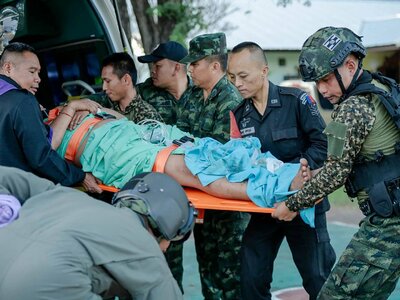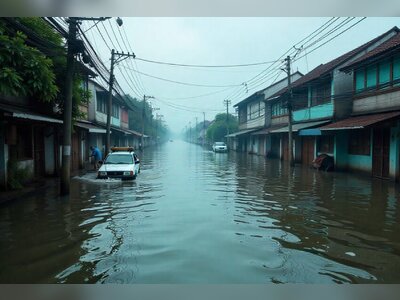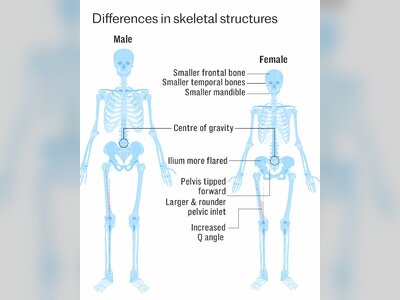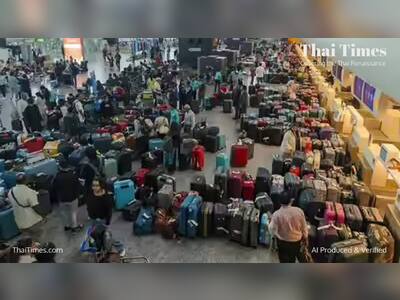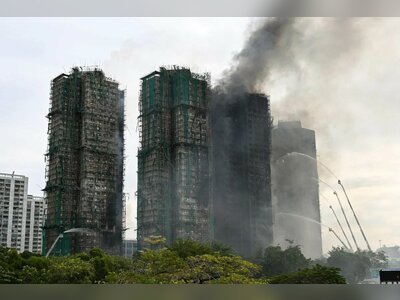
Songkran Festival: Strong Tourism Projections Amid Recent Earthquake
Thai government optimistic about spending and travel plans for Songkran; new tourism trends emerge from generational shifts.
The Thai government has reported an optimistic outlook for tourism and spending during the upcoming Songkran festival, despite recent seismic activity.
Deputy government spokesman Anukul Prueksanusak affirmed that sentiment remains largely unaffected by the earthquake, citing a consumer behavior survey conducted by the University of the Thai Chamber of Commerce.
This survey indicates that spending during Songkran is projected to rise by 4.5% to 134 billion baht, up from 129 billion baht last year.
This figure is the highest recorded since 2020 when spending was noted at 69 billion baht.
The survey also revealed that only 5% of respondents plan to reduce their spending, reaching the lowest level since 2016. Furthermore, 72.1% of those surveyed have travel plans for the Songkran holiday, representing the highest percentage since 2019 and signifying growing confidence as the tourism sector continues its recovery.
Following the earthquake, 71.7% of respondents reported no change in their spending plans, with 17.1% intending to increase expenditure and 11.2% expecting to cut back.
Most individuals indicated that they would continue their usual Songkran celebrations, although they may avoid indoor events or high-rise venues.
"People can travel with confidence during Songkran this year," Prueksanusak stated, highlighting that the government has instructed relevant agencies to expedite inspections for safety at hotels, major tourist sites, and buildings in areas identified as high-risk after the earthquake.
Security forces are collaborating with tourism officials to ensure travelers' safety at destinations across the nation while disseminating crucial information to bolster public confidence.
In parallel to these promising statistics, a recent analysis by AirAsia has outlined distinct travel behaviors between generational groups, with Millennials and Gen Z travelers demonstrating different preferences compared to Baby Boomers.
According to the AirAsia MOVE database, approximately 80% of Gen Z travelers prefer to book trips via smartphones, with a notable 24% favoring last-minute bookings.
This group tends to lean towards solo and backpack traveling, preferring affordable accommodations like hostels and valuing unique experiences.
In contrast, Baby Boomers prioritize comfort and luxury, with 40% already booking premium tour packages at least a month in advance and showing a preference for high-end hotels.
Destination choices also diverge markedly between these generations.
During Songkran, 30% of Gen Z plans to visit Chiang Mai, favored for its eco-friendly hostels and outdoor activities, while Baby Boomers are drawn to Japan, with 14% targeting popular locations such as Kyoto, renowned for its traditional architecture and gardens.
Increasingly, as the wellness tourism sector flourishes, the BDMS Wellness Clinic is cooperating with Celes Samui Hotel on Koh Samui, leveraging the recent popularity spike from the series 'The White Lotus'.
The partnership aims to promote health tourism by providing comprehensive wellness vacation experiences under the wellness economy model, which has seen significant growth over recent years.
Recent reports indicate that Thailand's wellness economy has become the fastest-growing globally, with an annual growth rate of 28.4%.
Wellness tourism specifically has expanded by 119.5%, highlighting its prominence in the Thai economy.
The establishment of the BDMS Wellness Clinic at Celes Samui caters to tourists seeking both relaxation and health management, underscoring a global shift towards holistic travel experiences.
Deputy government spokesman Anukul Prueksanusak affirmed that sentiment remains largely unaffected by the earthquake, citing a consumer behavior survey conducted by the University of the Thai Chamber of Commerce.
This survey indicates that spending during Songkran is projected to rise by 4.5% to 134 billion baht, up from 129 billion baht last year.
This figure is the highest recorded since 2020 when spending was noted at 69 billion baht.
The survey also revealed that only 5% of respondents plan to reduce their spending, reaching the lowest level since 2016. Furthermore, 72.1% of those surveyed have travel plans for the Songkran holiday, representing the highest percentage since 2019 and signifying growing confidence as the tourism sector continues its recovery.
Following the earthquake, 71.7% of respondents reported no change in their spending plans, with 17.1% intending to increase expenditure and 11.2% expecting to cut back.
Most individuals indicated that they would continue their usual Songkran celebrations, although they may avoid indoor events or high-rise venues.
"People can travel with confidence during Songkran this year," Prueksanusak stated, highlighting that the government has instructed relevant agencies to expedite inspections for safety at hotels, major tourist sites, and buildings in areas identified as high-risk after the earthquake.
Security forces are collaborating with tourism officials to ensure travelers' safety at destinations across the nation while disseminating crucial information to bolster public confidence.
In parallel to these promising statistics, a recent analysis by AirAsia has outlined distinct travel behaviors between generational groups, with Millennials and Gen Z travelers demonstrating different preferences compared to Baby Boomers.
According to the AirAsia MOVE database, approximately 80% of Gen Z travelers prefer to book trips via smartphones, with a notable 24% favoring last-minute bookings.
This group tends to lean towards solo and backpack traveling, preferring affordable accommodations like hostels and valuing unique experiences.
In contrast, Baby Boomers prioritize comfort and luxury, with 40% already booking premium tour packages at least a month in advance and showing a preference for high-end hotels.
Destination choices also diverge markedly between these generations.
During Songkran, 30% of Gen Z plans to visit Chiang Mai, favored for its eco-friendly hostels and outdoor activities, while Baby Boomers are drawn to Japan, with 14% targeting popular locations such as Kyoto, renowned for its traditional architecture and gardens.
Increasingly, as the wellness tourism sector flourishes, the BDMS Wellness Clinic is cooperating with Celes Samui Hotel on Koh Samui, leveraging the recent popularity spike from the series 'The White Lotus'.
The partnership aims to promote health tourism by providing comprehensive wellness vacation experiences under the wellness economy model, which has seen significant growth over recent years.
Recent reports indicate that Thailand's wellness economy has become the fastest-growing globally, with an annual growth rate of 28.4%.
Wellness tourism specifically has expanded by 119.5%, highlighting its prominence in the Thai economy.
The establishment of the BDMS Wellness Clinic at Celes Samui caters to tourists seeking both relaxation and health management, underscoring a global shift towards holistic travel experiences.
